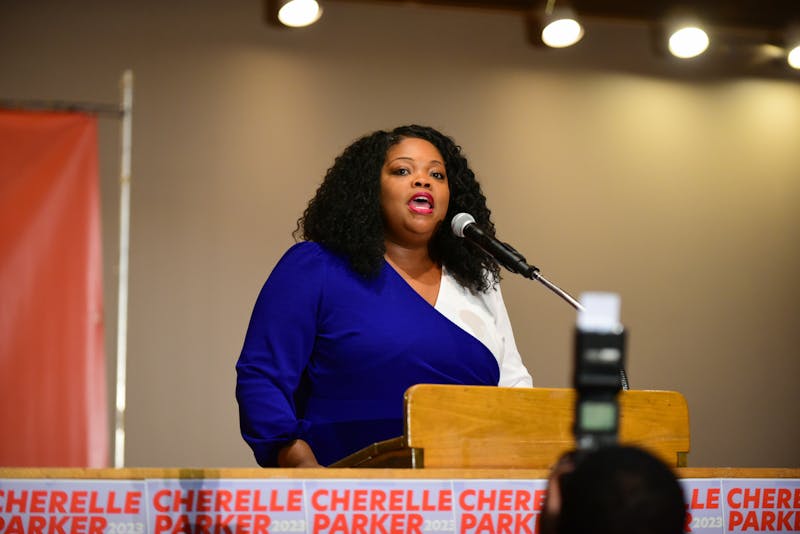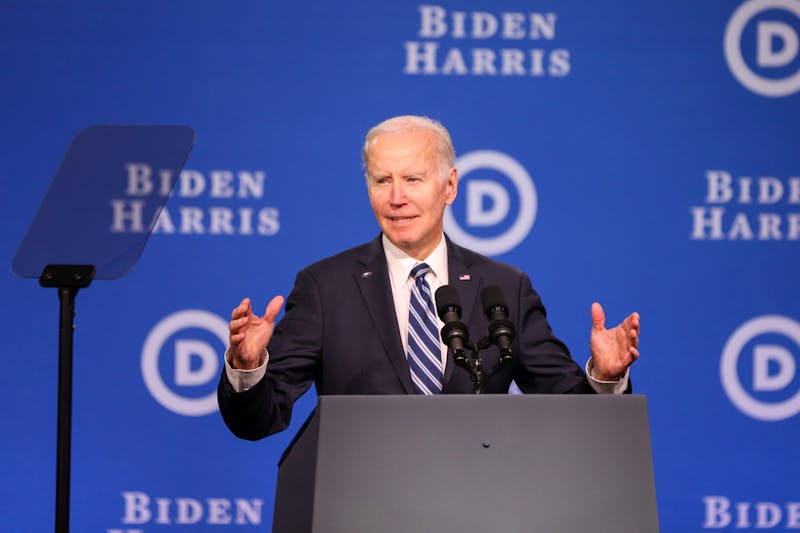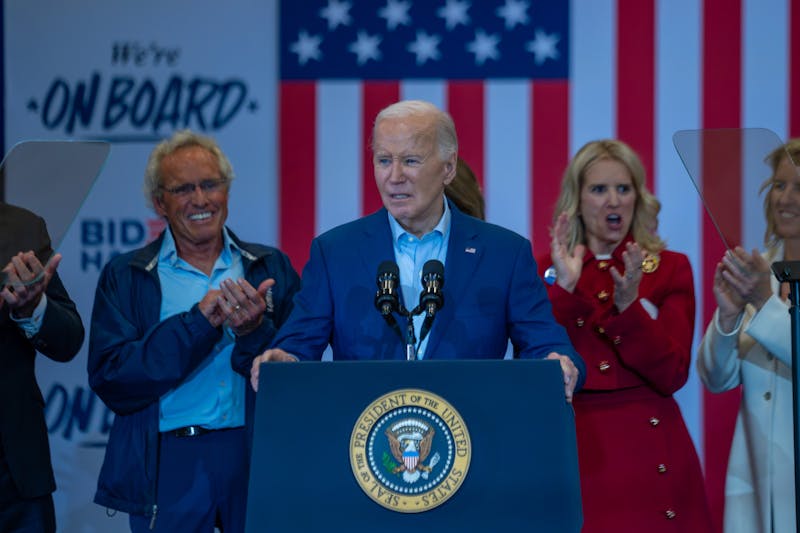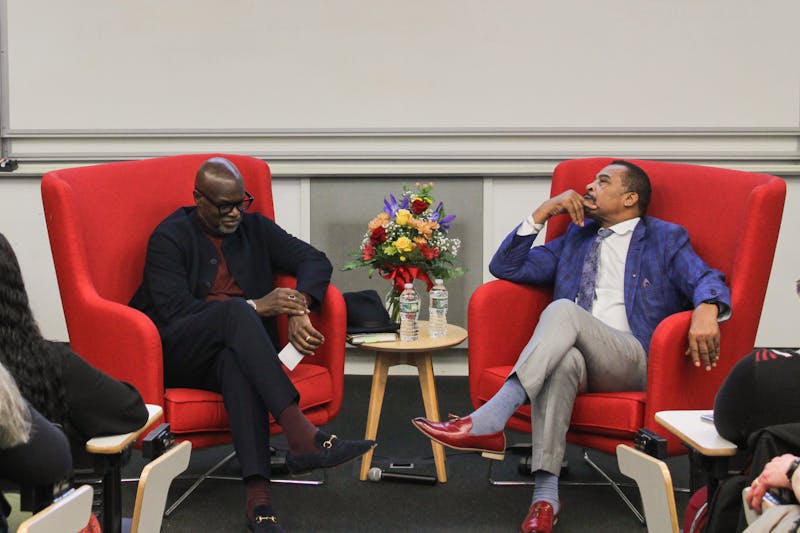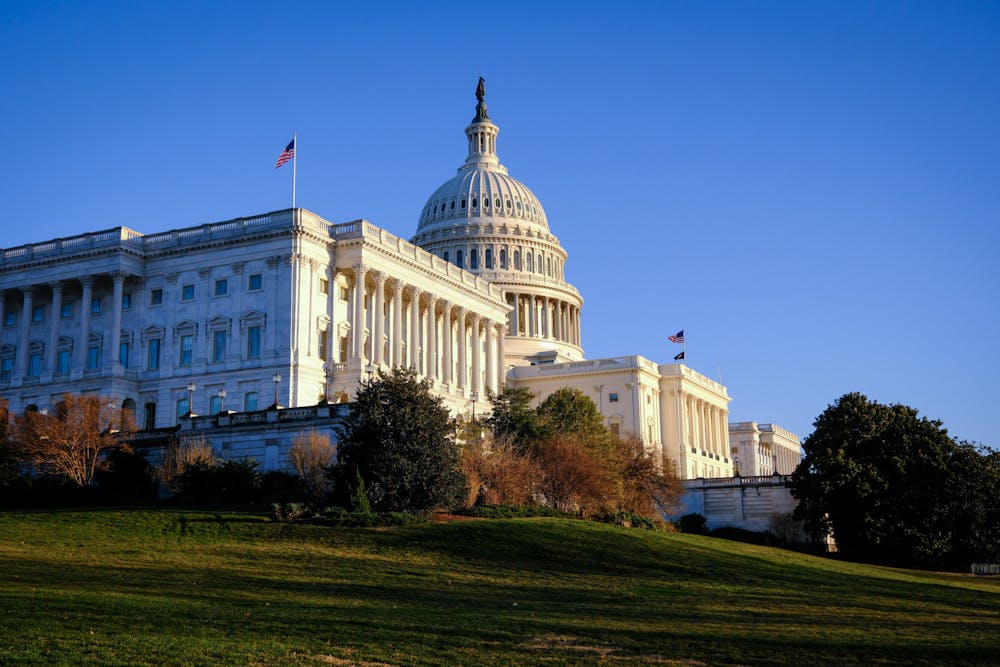
While Penn is well known for being home to the first-ranked business school in the country and sending large swaths of students into the financial world, it is also a breeding ground for political hopefuls.
Both major presidential candidates — 1968 Wharton graduate and former President Donald Trump, and former Penn Professor of Presidential Practice and President Joe Biden — have deep ties to Penn. Penn’s undergraduate and graduate programs have produced hundreds of students who have gone on to hold prominent roles in politics and government.
The Daily Pennsylvanian spoke with eight Penn alumni who have gone on to hold a diverse array of careers in politics — from the local level to overseas.
Growing up in a household of lawyers, 1984 University of Pennsylvania Carey Law School graduate Rep. Mary Gay Scanlon’s (D-Pa.) decision to go to law school was clearly solidified by the time she entered her undergraduate studies. While at Penn, Scanlon noticed the clear public service component that Penn's law school had, which eventually drove her to work with public interest law firms that tackled issues such as voting rights, immigration, and poverty.
However, entering the political realm was never on the agenda until Trump was elected in 2016.
“It was something of a shock that instead of having the first female president [in Hillary Clinton], we had a serial adulterer, truth denier — someone with no history of public service — suddenly president and upending a whole lot of democratic norms,” Scanlon said.
The redistricting of Scanlon’s constituency also played a role, as the demographic shift opened up a race that otherwise would have likely skewed in favor of Republican candidate Pearl Kim. Scanlon quickly seized the opportunity to enter the political world as a representative in Congress and has done so since 2019.
“If I’d had time to think about it, I don’t know if I would have gotten there,” Scanlon said. “It was a six-week period from the time of the decision to redistrict until when the primary occurred, so it was just very fast and furious.”
1992 College and Wharton graduate Charles Djou represented Hawaii in the United States House of Representatives from 2010 to 2011 as a result of a special election before being “involuntarily retired by the voters,” as he put it. Djou has also served as a member of the Army Reserves for over 20 years and was deployed in Afghanistan during Operation Enduring Freedom.
Djou, a Republican-turned-Democrat, went from being president of Penn College Republicans to serving as Secretary of the American Battle Monuments Commission under Biden. Despite his change of party, Djou feels as though American higher education has become more "close-minded" than it was when he was at Penn.
“Education is supposed to be about hearing lots of different ideas and perspectives, and then drawing conclusions after you hear lots of different ideas and perspectives,” Djou said. “If you're not even willing to listen, I think something's missing in higher education.”
Both 1980 College graduate Marc Morial and 1963 College graduate Marjorie Margolies followed similar career paths — they both graduated from Penn, spent time as elected officials, and then went on to involve themselves in political activism.
Morial was mayor of his hometown, New Orleans, from 1994 to 2002 after serving as a Louisiana state senator from 1992 to 1994, but his career trajectory was largely shaped by Penn and the surrounding city of Philadelphia.
“At the time, Frank Rizzo was mayor, and the political environment in the city was charged up with a lot of racial disputes," Morial said. "There was a lot of interesting local politics, and I think that was also part of my learning experience.”
For Margolies, who is now a lecturer at the Annenberg School for Communication, her start in journalism working for WCAU-TV in Philadelphia, as well as NBC, eventually gave way to her election in the U.S. House of Representatives in 1992 — a year that would become known as the “Year of the Woman” due to the number of elected female senators.
The name recognition and knowledge of the system that she acquired through her journalistic work covering Washington was the primary catalyst for her eventual nomination, but winning in what had been a Republican district did not seem feasible for Margolies at the time.
“The women in Montgomery County came to me and said, ‘Would you run for office?’ I told my kids, ‘You can't win if you're not prepared to lose, you have to get on the playing field.’ And that's what I faced,” Margolies said. “On election night, I only brought in a concession speech.”
After their time in politics, Morial went on to be the president of the National Urban League — a position he has held for over 20 years — and Margolies became the founding president of Women’s Campaign International.
Pennsylvania state Rep. Rick Krajewski (D-Philadelphia) — who now represents Penn in the state legislature — had a more unique academic trajectory. At Penn, Morial majored in economics and African American studies, while Margolies majored in political science. On the other hand, Krajewski graduated from the School of Engineering and Applied Science in 2013 with a bachelor's degree in electrical engineering.
Krajewski had the opportunity to attend Penn through Prep for Prep, a scholarship program for promising students of color that paid his way through a New York private high school and helped gain him admission into the University. At Penn, the successes and struggles that Krajewski faced throughout his time guided his interest in the political field and eventually pushed him to run for office.
“I had access to an amazing education and amazing educational opportunities, and also was very personally challenging for me as a poor Black student on campus, often feeling very alienated and feeling like I couldn't seek support when I was struggling academically,” Krajewski said.
Upon graduating, Krajewski originally worked in software engineering. He quickly realized that working in STEM fields enabled him to secure the financial stability that he sought, others in his position rarely have access to similar kinds of education.
“Many people who look like me, who come from the kind of communities I come from, would never get access to those kinds of opportunities because [STEM] isn't a topic that's often taught in inner-city schools,” Krajewski said.
Krajewski made the switch to teaching, working with students in West Philadelphia before running for a seat on the Pennsylvania House of Representatives and assuming the role of representing Pennsylvania’s 188th district in 2020. Currently, Krajewski is running for re-election and looking to continue working to improve education in Philadelphia.
Other Penn alumni have made an impact in the government outside of an elected role. 1976 College graduate Michael Kirby was the United States Ambassador to the Republic of Moldova in 2006 and to Serbia in 2012, with decades of experience in the United States Department of State prior to those appointments.
At Penn, Kirby double majored in history and biology, which eventually led him to pursue graduate work in history that went on to shape his career in government.
“That was one of the great things about Penn,” Kirby said. “I think it forces you to go more deeply into a particular subject.”
Kirby grew up in Paris, and after enrolling and progressing through coursework at Penn, he realized that he wanted to do things overseas — a notion that would guide the trajectory of the rest of his career in government. This, and the critical thinking and writing skills that he developed while at Penn and studying two disciplines with minimal overlap, enabled him to pursue the work that he continued for the rest of his life.
“I think my education has helped me develop my critical thought process, and an ability to write allows me to articulate it, and I think diplomacy also forces you to not only think critically but be able to express it both in writing and in meetings,” Kirby said.
Similarly, John Lehman — who received his Ph.D. in international relations from Penn in 1974 — served as the U.S. Secretary of the Navy under former President Ronald Reagan, and worked closely with former U.S. Secretary of State Henry Kissinger in the National Security Council before that appointment.
After his undergraduate studies at St. Joseph’s University and receiving his master's from Cambridge, Lehman was torn between accepting a scholarship for an MBA at Wharton and pursuing the Ph.D. program he had applied for. Despite heavy influence from his father pushing him towards the business route, Lehman saw himself in government.
“It was a really hard decision for me. My dad said, ‘How are you going to make a living?’ I said, ‘I don't know, but I really feel passionately that I can do better down in Washington on foreign policy than they’re doing and I want to go get involved,” Lehman said.
Frank Lavin, who received his MBA from Wharton in 1996, wore many hats throughout his time in government, serving under former Presidents Ronald Reagan and George H.W. Bush. Lavin was driven towards the political realm due to the issues presented by the Cold War during his time in college.
However, when Bush lost the election to former President Bill Clinton, Lavin found himself out of a job and was forced to take a look at where his life was headed — a process that drove him to Penn.
Lavin viewed himself as someone who possessed strong business acumen but lacked formal training. Upon graduating from the Wharton School, Lavin worked at CitiBank before being invited back into government as the U.S. ambassador to Singapore when George W. Bush was elected in 2000.
“I spent most of the Bush years back in government, so I was very glad to have a Wharton background because it gave me a lot of depth,” Lavin said. “You just have an extra set of tools for analysis, for conversations, and for meeting people. There's a whole financial world out there that you want to be comfortable with.”
Despite the heavy business emphasis present at Penn that naturally leads many graduates into finance and consulting jobs, there is still a clear pipeline for people to enter public service and politics — and for some alumni such as Lavin, leveraging a business education works out in favor of furthering a career in government.
Regardless of academic interest, Scanlon said she believed there was a way to find those who think and aspire similarly.
“I think it's a big enough and diverse enough school in terms of the interest and the projects that are under the Penn umbrella, that if you look for it, you can find your fellow people,” Scanlon said.
The Daily Pennsylvanian is an independent, student-run newspaper. Please consider making a donation to support the coverage that shapes the University. Your generosity ensures a future of strong journalism at Penn.
Donate





